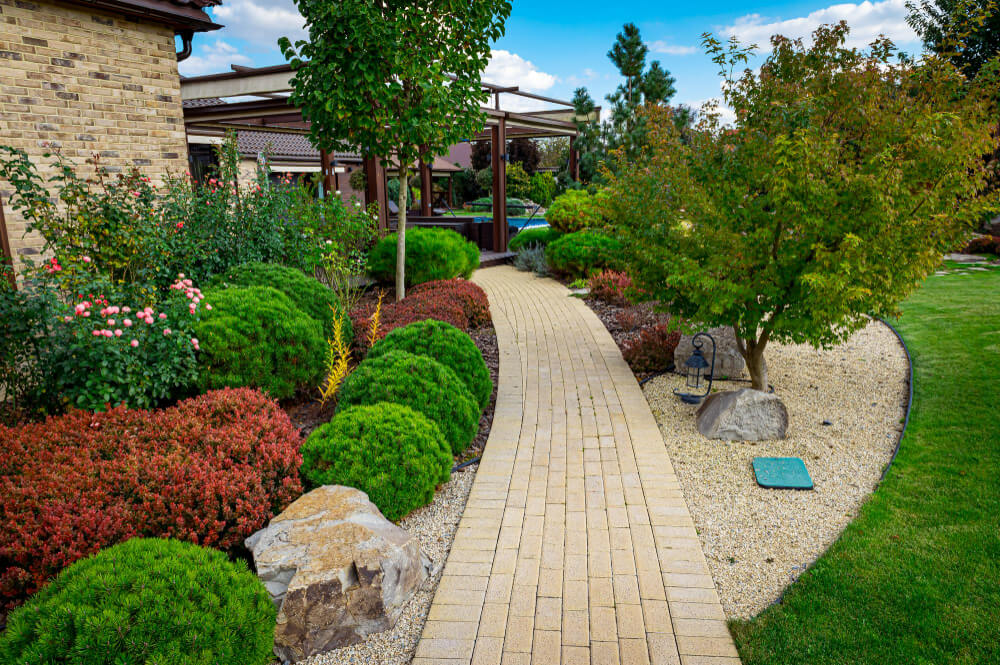Beautiful Plants For Your Interior

If you’re an avid gardener or someone who simply enjoys maintaining a beautiful outdoor space, it’s essential to recognize the significant role that soil quality plays in the overall health and success of your plants.
From providing essential nutrients to supporting proper root development, healthy soil is the foundation for thriving gardens.
In this article, we will explore key aspects such as the role of nutrients in soil health, assessing and improving soil structure, managing pH levels for optimal plant growth, and addressing the unique soil challenges that Houston presents.
Additionally, we will provide practical tips on enhancing soil quality specifically tailored to Houston’s climate and conditions.
By gaining a deeper understanding of soil quality and implementing effective strategies, you’ll be equipped to create a vibrant and flourishing garden right in the heart of Houston. So let’s dive in and explore the fascinating world beneath our feet!
The Role of Nutrients in Soil Health
Did you know that nutrients play a vital role in keeping your Houston garden’s soil healthy and thriving? Soil nutrients are essential for plant growth and development, as they provide the necessary elements for plants to carry out their metabolic processes. The three main nutrients that are crucial for soil health are nitrogen, phosphorus, and potassium.
Nitrogen is responsible for promoting leaf and stem growth, while phosphorus aids in root development and overall plant vigor. Potassium, on the other hand, helps plants to withstand stress and disease. In addition to these primary nutrients, secondary nutrients like calcium, magnesium, and sulfur, as well as micronutrients like iron, manganese, and zinc, are also important for optimal soil health.
By ensuring that your Houston garden’s soil is rich in these essential nutrients, you can create an environment that supports healthy plant growth and abundant yields.
Assessing and Improving Soil Structure
Assessing and improving the structure of soil in your Houston garden can greatly enhance the overall health and productivity of your plants. Soil structure refers to the arrangement of soil particles and the spaces between them.
A well-structured soil promotes root growth, water infiltration, and nutrient availability. To assess soil structure, you can perform a simple texture test by squeezing a moist soil sample in your hand. If it forms a hard, compacted ball, your soil may have poor structure. Improving soil structure can be done by adding organic matter, such as compost or aged manure, which helps create a crumbly soil texture.
Additionally, avoiding excessive tillage and compaction, as well as practicing crop rotation, can also contribute to better soil structure. By taking steps to assess and improve soil structure, you can create a foundation for healthy and thriving plants in your Houston garden.
Managing pH Levels for Optimal Plant Growth
Maintaining the right pH levels is crucial for creating an environment that nurtures vibrant, thriving plants in your Houston garden. pH levels determine the acidity or alkalinity of the soil, which directly affects nutrient availability to plants.
Most plants prefer slightly acidic to neutral pH levels, around 6 to 7.5. To manage pH levels, start by testing your soil using a pH testing kit. If the pH is too high or alkaline, you can lower it by adding organic matter such as compost or peat moss.
On the other hand, if the pH is too low or acidic, you can raise it by adding lime or wood ash. Regularly monitoring and adjusting pH levels will help ensure optimal plant growth and productivity in your Houston garden.
Dealing with Houston’s Unique Soil Challenges
Overcoming the distinct soil challenges in Houston can be an exciting opportunity for gardeners to experiment with different techniques and amendments. Houston’s soil is predominantly clay-based, which can lead to poor drainage and compaction issues. To improve soil quality, gardeners should focus on adding organic matter such as compost or aged manure to increase the soil’s ability to retain moisture and nutrients.
Additionally, incorporating sand or perlite can help improve drainage and prevent waterlogging. Houston’s hot and humid climate also poses challenges, as it can lead to rapid evaporation and nutrient leaching. To combat this, gardeners should consider mulching their beds to retain moisture and using slow-release fertilizers to ensure nutrients are available to plants over a longer period. By understanding and addressing these unique soil challenges, gardeners can create thriving and healthy gardens in Houston.
Tips for Enhancing Soil Quality in Your Houston Garden
To improve the health and productivity of your garden in Houston, try incorporating organic matter like compost or aged manure into the soil. These materials are rich in nutrients and help improve soil structure, allowing for better water retention and drainage. Adding compost or aged manure also increases the soil’s ability to hold onto essential nutrients, reducing the need for chemical fertilizers. Another way to enhance soil quality is by using cover crops.
These crops, such as clover or rye grass, help prevent erosion and add organic matter to the soil when they are tilled or mowed. Additionally, practicing crop rotation can help break pest and disease cycles, improving overall soil health. By implementing these tips, you can transform your Houston garden into a thriving and sustainable oasis.
Frequently Asked Questions
What are some common pests and diseases that can affect soil health in Houston gardens?
Some common pests and diseases that can affect soil health in Houston gardens include root-knot nematodes, fungal diseases like powdery mildew, and pests like aphids and whiteflies. Proper soil management and pest control measures are essential for maintaining soil health.
How often should I test my soil to assess its quality and nutrient levels?
You should test your soil every 2-3 years to assess its quality and nutrient levels. Regular testing will help you make informed decisions about fertilizers and amendments to maintain a healthy garden.
Are there any specific plants that thrive in Houston’s unique soil conditions?
There are several plants that thrive in Houston’s unique soil conditions, such as native grasses like buffalo grass, shrubs like dwarf yaupon holly, and flowers like Gulf Coast penstemon.
What are some natural methods for improving soil fertility and structure?
Some natural methods for improving soil fertility and structure include adding compost, using cover crops, practicing crop rotation, and incorporating organic matter like manure or mulch into the soil.
Can excessive use of chemical fertilizers and pesticides harm the soil in the long run?
Yes, excessive use of chemical fertilizers and pesticides can harm the soil in the long run. They can disrupt the natural balance of microorganisms, deplete organic matter, and lead to soil erosion and contamination.
Conclusion
In conclusion, it is crucial to prioritize soil quality in your Houston garden. Understanding the role of nutrients, assessing and improving soil structure, managing pH levels, and dealing with unique soil challenges are all essential for optimal plant growth. By following the tips provided, you can enhance soil quality and create a thriving garden in Houston’s unique environment. Remember, healthy soil leads to healthy plants, and a beautiful garden awaits you with proper soil care.
